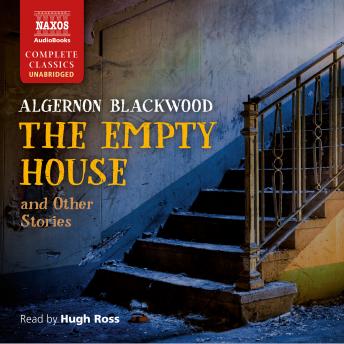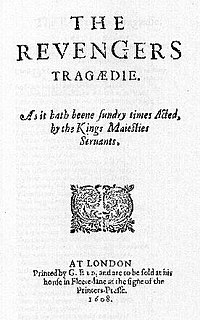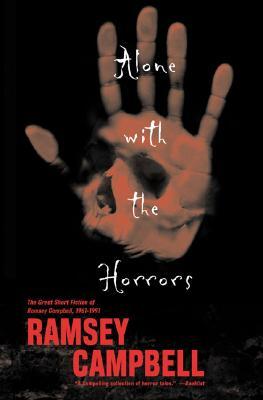I’m back y’all with another round of book write-ups on this kooky journey I’ve set out on. It’s been a fun one too. What I’ve determined after reading over a hundred of these books so far is that guess what? I LIKE HORROR FICTION, FOLKS! This is why it delights me to bring you another chunk o’ fear! In this batch, we have high-concept space terror, some classics of weird fiction courtesy of one of the masters, a dark, sexy erotic horror opus, a very old and very bloody play and a chunky collection of short stories from a modern British maestro of horror.
For those just joining me, this is my journey through the following “Best of” Horror lists:
Reedsy Discovery Best Horror Books
Stephen Jones & Kim Newman’s Horror: 100 Best Books
Stephen Jones & Kim Newman Horror: Another 100 Books
If you want to check out my previous entries, they can be found here:
Part 19 | Part 18 | Part 17 | Part 16 | Part 15 | Part 14 | Part 13 | Part 12 | Part 11 | Part 10 | Part 9 | Part 8 | Part 7 | Part 6 |Part 5 | Part 4 | Part 3 | Part 2 | Part 1
As a great man who loved to boink once said, “Let’s get it on”.

Obscura (Joe Hart, 2017)
List: Reedsy Discovery
Dr. Gillian Ryan’s husband has succumbed to Losian’s disease, a degenerative memory disorder that’s an aggressive form of dementia. She now discovers her daughter has also developed an early onset version of it and races to find a treatment only to run into a major obstacle of having her funding her. Along comes Carson, an old flame from college who is now a high-ranking officer working for NASA and who has a tantalizing and perilous offer for her. Travel to an moon-orbiting space station and attempt to discover why various crew members are suffering a Losian’s-like affliction. In exchange, permanent funding and access to excellent resources to find a cure for her daughter. Dr. Ryan is torn between taking the offer and being away from her daughter for six months or losing her funding and watching her daughter’s mind slowly die away. Naturally she takes the offer, but of course not all is as it seems and there are things far more sinister at play.
This was a pretty solid read. Very good pacing with the book essentially divided into halves with the first half taken up with everything discussed in the above paragraph and the second half with a much more dangerous and terrifying situation that Gillian finds herself in. Yes, I’m being intentionally vague to avoid spoilers. Suffice it to say, the book does a solid job of building up a mystery even though I felt it tipped its hand a little too much too early in a couple places. Also the final third of the book feels a little too slickly Hollywood for my taste, as if its a warm up for a screenplay treatment or something. Still if you like sci-fi thrillers with a dash of mystery and horror you may find this one pretty engaging.

The Empty House and Other Ghost Stories (Algernon Blackwood, 1906-1910)
List: NPR
This audiobook collection includes four of Algernon Blackwood’s better known and more well-regarded stories including “The Willows”, the novella included in the mega list I’m working through. The first story “The Empty House” is a very traditional ghost story of a man and his aunt who go to investigate a haunted house and find the sort of thing you’d imagine would be there. While this one isn’t the most original story, Blackwood tells it was a firm grasp of creeping dread and while the conclusion felt a little rushed, it’s still a solid little story. Next up is “The Willows” which truly does earn its reputation. While its setup is a bit protracted, this novella of two men on a camping trip to an island who witness bizarre and horrific things amidst the willows is incredibly well-crafted in its descriptions, and it’s easy to see why H. P. Lovecraft held the story in such high regard. Lovecraft himself said of it in his seminal essay “Supernatural Horror in Literature”:
“Here art and restraint in narrative reach their very highest development, and an impression of lasting poignancy is produced without a single strained passage or a single false note.“
Following “The Willows” is “The Listener”, a story of a bitter, anxious individual dwelling in a creaking old house that seems to be having an effect on him, slowly driving him to madness. This was another solid story with a dark and terrible finale that explains much. The final story is “The Wendigo”, one I’ve read before but decided to listen to in audiobook form because… why not? On revisiting this one, my initial impressions of it hold true. I still feel it’s too long with a kind of meandering narrative. But I also think it has some quite effective moments capturing a dark tale of folklore. Overall, Blackwood is a masterful writer than I plan to dig into deeper in the future.

Finishing Touches (Thomas Tessier, 1989)
List: Jones/Newman
American Tom Sutherland has decided to take a break in London after med school to sort out his life. He finds himself adrift, floating from bar to bar across the city in search of something he doesn’t even realize. Into his life comes the curious and famous plastic surgeon Dr. Nordhagen who introduces him to the exclusive and exotic club Feathers, and even more importantly, his voluptuous and sexually adventurous assistant Lina. Tom’s affair with Lina and his association with Nordhagen pulls him deep and deeper into a dark pit of psychosexual madness from which he may never escape, nor want to.
I’m sure when some see the cover art for this and the basic plot synopsis, images of tripe like 50 Shades of Grey may pop into your mind. Where 50 Shades dips its toe into kink for the sake of getting a rise out of bored housewives via rejected Twilight fan fic, Finishing Touches is the real deal. This is not. novelty. It’s a highly literate, very adult, in every sense, tale that pulls you deeper and deeper into its twisted world, peeling back each layer until its rotten core is exposed before it throws away the core and starts fresh with an even broader scoped deviance. I was skeptical of this one to be frank, general not a fan of torture porn and S&M type stuff. This isn’t really either one of those. It’s much more an incredibly dark series of psychological torments and mind games, fusing love and death into an unholy amalgamation. Tessier is an excellent writer that’s able to pull off what might have come across ridiculous or even laughable in the hands of someone more ill-equipped. Very good but not recommended for the gentle souls out there. The paperback edition I read included a bonus novella called Father Panic’s Opera Macabre which has some similarities to Finishing Touches with its slow burn mix of sex and dark weirdness. But it is a much more graphically visceral and straight up bizarre work as compared to the prior story. It’s still quite well done and worth checking out if you liked Finishing Touches though.

The Revenger’s Tragedy (Thomas Middleton/Cyril Tourneur, 1606)
List: Jones/Newman
Vendice wants REVENGE in all caps and gives a soliloquy to his lost love’s skull at the beginning of the play to say as much. Then he does. A lot. Quite bloody replete with gory severed head, poisoning and mild necrophilia among other things, this play is about as subtle as a sledgehammer in its themes. With characters frequently saying exactly how they feel and doing exactly what they feel like with little to no pretense. I was actually sort of familiar with this story already having watched the bonkers Alex Cox film version that modernizes it in some ways while still retaining much of the archaic 17th century dialogue. While it has a similar arc to that of Shakespeare’s Hamlet with gruesome scenes not unlike something you’d see in Titus Andronicus or Macbeth, it feels much more straightforward than anything Shakespeare would have written (having said that, the dialogue is still probably going to be a barrier to many people given the time period in which it is written). While I didn’t unabashedly love this I can at least appreciate its influence on the horror genre with its grand guignol style plot devices.

Alone with the Horrors (Ramsey Campbell, 1993)
List: NPR
Ramsey Campbell is often regarded as one of the great masters of the horror short story. Beginning his career as a belated acolyte of H.P. Lovecraft but soon after evolving his style into something both more eerie and horrific but also more grounded in the urban terror that Fritz Leiber trafficked in. Campbell’s horrors dwell in dark recesses of seemingly benign things like cellars, chimneys, apple trees and telephones and shadowy areas of cities like underpasses and parks. He often employs a more slow burn yet still economic style that introduces his characters and establishes a mood before slowly ramping up the terror, often culminating in something awful with the story ending before the true horror is completely revealed. Several of Campbell’s stories have a strong psychological component to them like the paranoia of a possible doppelgänger in “The Scar”, the increasingly frazzled telemarketer of “End of the Line”, the fear of a past coming back to torment them as in “In the Bag”… He creates modern urban legends in very good, disturbing stories like “The Man in the Underpass” and “Mackintosh Willy”. Stephen King has professed his love of “The Companion”, one of Ramsey Campbell’s most well-known stories and one that acts as a nice encapsulation of what Campbell does, employing a slow creep dread that steadily ramps up until revealing something deeply unsettling at the end.
While Campbell abandoned early on his obviously (not very good) aping of Lovecraft, several of his later stories still employ similar vibes like the horrors of a dusty old bookshop in “Cold Print” and the weird and somewhat meandering but still interesting “The Voice on the Beach”. In addition to some of the previously mentioned stories, I also liked “The Brood” quite a lot, one that was featured in the seminal ’80s horror anthology Dark Forces and I think it’s one of the best Campbell has ever done. Overall, while not every story here lands in a completely satisfying way (sometimes his endings can be too vague for their own good), overall Campbell’s reputation as an excellent short story writer is well-deserved in my opinion.

